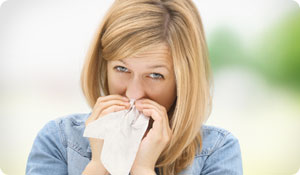
Do you go to great lengths to avoid germs and dirt? If so, you might be surprised to know that your efforts could actually be bad for your health. While this may sound contrary to your ideas about germs and illness, scientists have discovered that the cleaner the environment gets, the higher the rates are of allergies and related deaths.
Taking a Turn for the Worse
When you think of seasonal allergies, you probably think of symptoms like coughing and sneezing. But more severe, or even life threatening, allergic reactions also exist. In fact, more than 50 million people today have allergies, according to the Asthma and Allergy Foundation of America (AAFA), and this number has been on the rise in recent years. In addition, the number of allergy and asthma-related deaths has also been reaching new heights, causing concern and prompting scientists to try to get to the bottom of why this is happening.
Does "Too Clean" Exist?
Researchers from Montreal recently took a close look at the widespread nature of allergies and allergy deaths determined that the problem could be that the environment today is just too clean.
They point out that in the past, people were exposed to bacteria in the course of their daily life. These bacteria typically moved into the gut, where it helped protect against allergies and other forms of illness. Today, however, people make a strong effort to banish the germs and in the process, they may be affecting their immune system functioning and causing it to over-respond to a variety of common factors. This concept is commonly referred to as the "hygiene hypothesis."
What all this means is that the latest generation of children has higher odds of having allergies and asthma than their counterparts did. People who live in big cities also seem to be at increased risk of allergies and asthma, especially when compared to country dwellers who have regular contact with dirt and animals.
Keeping it in Perspective
If you're worried about how to address the risk of severe allergies and allergy deaths, here are some things to consider:
- Some pediatricians believe that if children with a high risk of allergies take probiotics, this may provide the bacteria their bodies need to offer a protective factor. The same may be true for adults, so ask your doctor if this method might be worth a try for your entire family.
- Do continue to clean your house and to prevent the spread of germs and airborne illnesses, since exposure to dirt won't really treat existing allergies or make them go away.
- Beware of unnecessarily relying on antibiotics in cases where they aren't likely to relieve an illness. Such an overuse of antibiotics can affect the body's reaction to bacteria and cause an increase risk of allergies and asthma. That being said, though, when your doctor feels this medication is appropriate, be sure to take it as he directs.
More research is current being conducted to continue to understand how allergic conditions occur and the way that the immune system functions, particularly in young children. The findings may help to determine how best to prevent serious allergies and allergy deaths in the future.
Sources
American Academy of Allergy, Asthma and Immunology (AAAAI)
http://www.aaaai.org/patients/advocate/2007/winter/hypothesis.asp
http://www.aaaai.org/patients/allergy_asthma_issues/2009/summer/dirt.asp
Metro News Canada
Paedeatric and Perinatal Epidemiology
http://www.ncbi.nlm.nih.gov/pubmed/17935569





